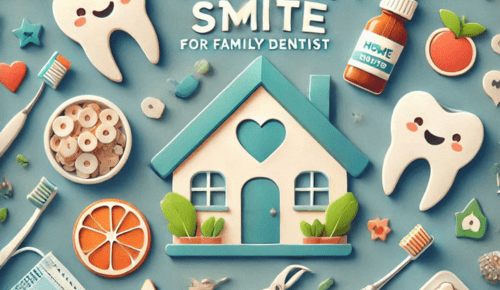Creating healthy smiles starts at home. Good dental care ensures strong teeth and a bright smile for every family member. In this blog, I will share some practical tips that families can use to maintain oral health. Regular brushing, flossing, and a balanced diet are key. These habits help prevent cavities and other dental problems. A visit to the dentist is essential, but effective home care can reduce the need for frequent visits. An endodontist in San Jose might only be necessary when more complex dental issues arise. By following these home care tips, families can keep their teeth healthy and smiles beautiful. Maintaining oral health is not just about routine; it’s about embracing simple, daily practices. Let’s explore the best ways to care for your family’s dental needs and ensure everyone has a reason to smile.
The Importance of Daily Brushing and Flossing
Brushing twice a day is the cornerstone of good oral health. It removes plaque, which can lead to cavities and gum disease. Use a soft-bristle toothbrush and fluoride toothpaste. Each brushing session should last two minutes. Flossing complements brushing by reaching areas that toothbrushes can’t, like between teeth. Together, these practices help maintain healthy teeth and gums.
Balanced Diet and Oral Health
A nutritious diet is vital for strong teeth. Foods rich in calcium, like milk and cheese, support enamel strength. Crunchy fruits and vegetables, such as apples and carrots, help clean teeth surfaces. Avoid sugary snacks and drinks. Sugar feeds bacteria that produce acid, leading to tooth decay.
Understanding the Need for Regular Dental Check-ups
Routine dental check-ups are crucial. They allow dentists to detect problems early, preventing them from becoming serious. The American Dental Association suggests visiting the dentist at least once every six months. For more information, visit the American Dental Association’s patient education resources.
Fluoride Use
Fluoride is a mineral that strengthens tooth enamel. Many communities add fluoride to their water supply. Fluoride toothpaste and mouth rinses can also provide protection. Consult your dentist about the right amount of fluoride for your family. For further guidance, the Centers for Disease Control and Prevention offers excellent resources on fluoride use.
Tips for Children’s Oral Care
- Start cleaning your child’s teeth as soon as they appear.
- Use a small, soft toothbrush and a rice-sized amount of fluoride toothpaste.
- As children grow, teach them to brush and floss on their own.
Creating a Fun Oral Care Routine
Make oral care enjoyable for children. Use toothbrushes with their favorite characters. Play a two-minute song while brushing to make sure they brush long enough. Reward them for good oral hygiene habits. These strategies help children see dental care as a fun routine.
Handling Dental Emergencies
Accidents happen. Knowing how to handle them can make a big difference. If a tooth is knocked out, keep it moist and seek immediate dental care. For a toothache, rinse the mouth with warm water. Use a cold compress to reduce swelling, but avoid aspirin. Quick action can save a tooth.
Comparing Oral Care Products
| Product | Benefits | Considerations |
| Manual Toothbrush | Affordable, easy to use | Requires proper technique |
| Electric Toothbrush | More effective at plaque removal | Higher cost, needs charging |
| Floss | Removes plaque between teeth | Can be difficult for some to use |
| Water Flosser | Easy for braces, gentle on gums | More expensive, requires water |
Conclusion
Oral health is a team effort between home care and professional dental services. By brushing, flossing, eating well, and having regular check-ups, families can maintain healthy smiles. When complex issues arise, professionals like an endodontist in San Jose can provide the necessary care. With these tips, every family member can enjoy a lifetime of healthy smiles.

